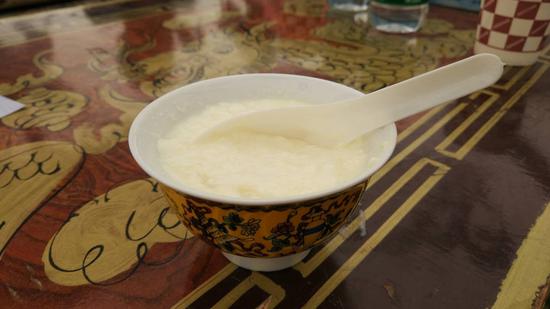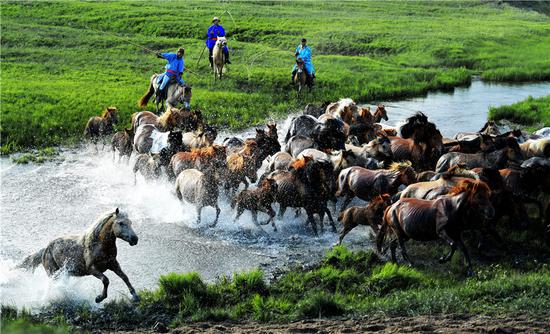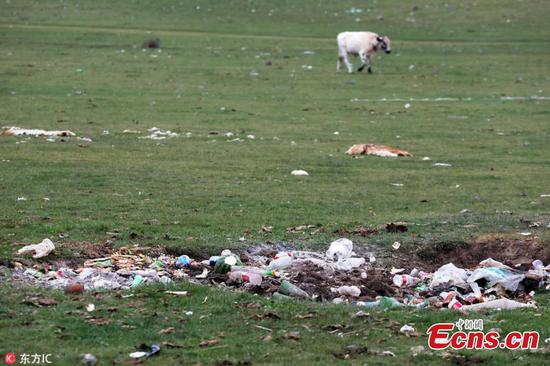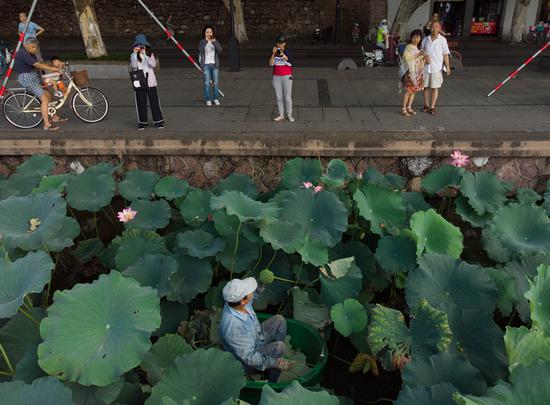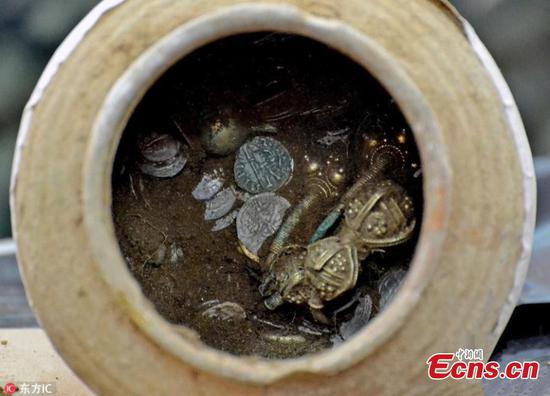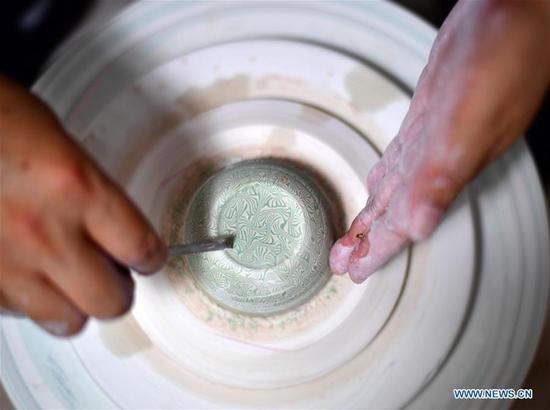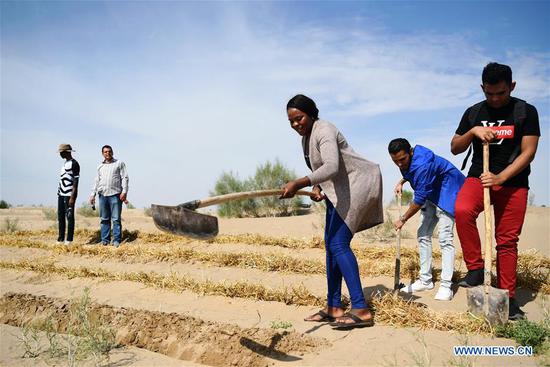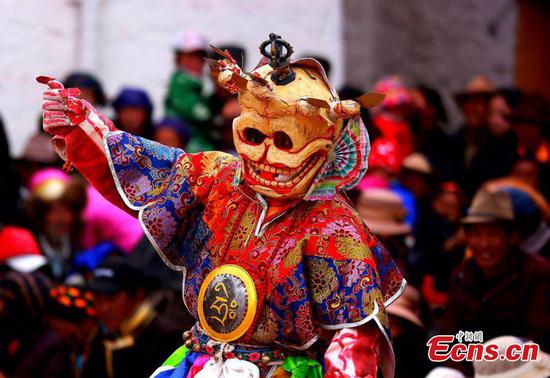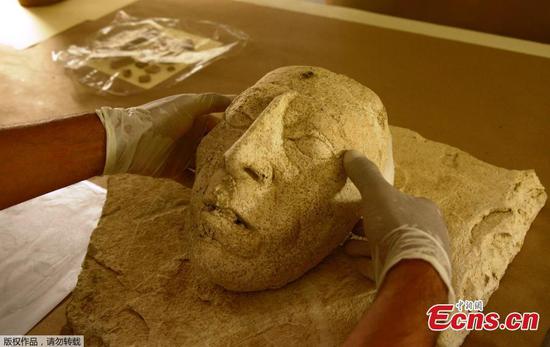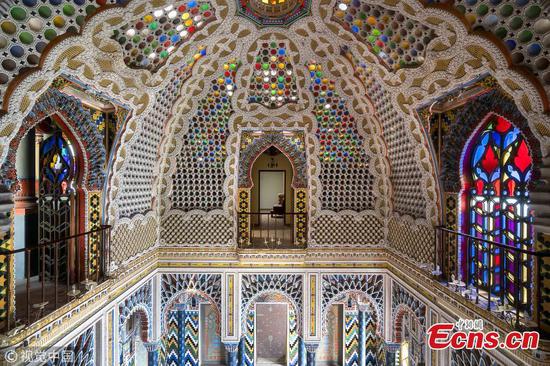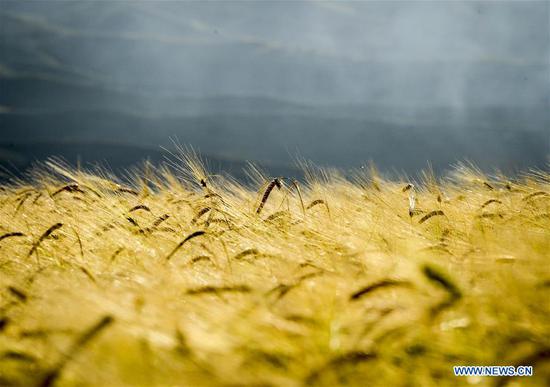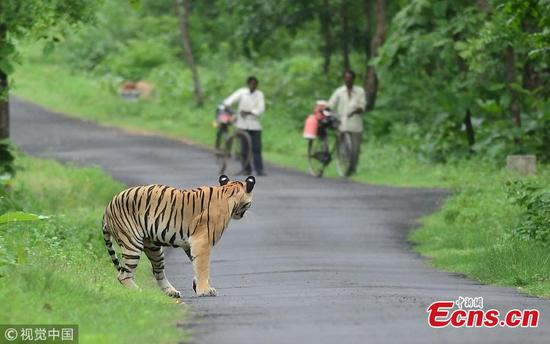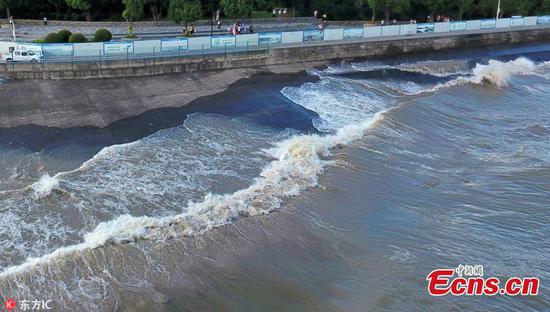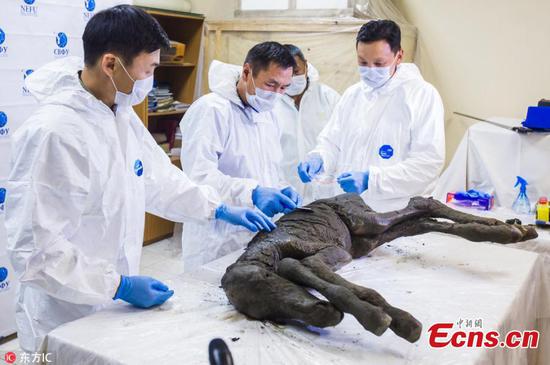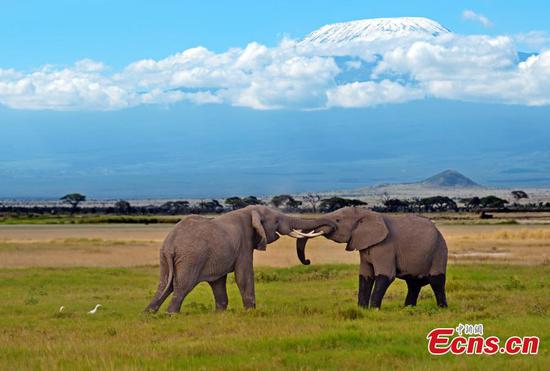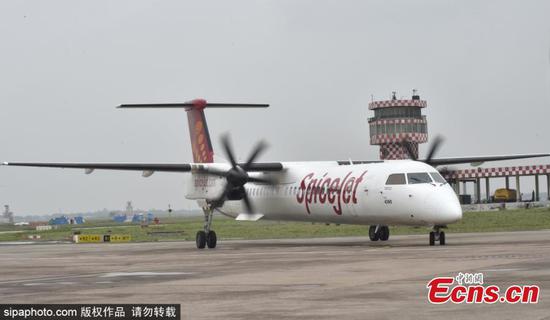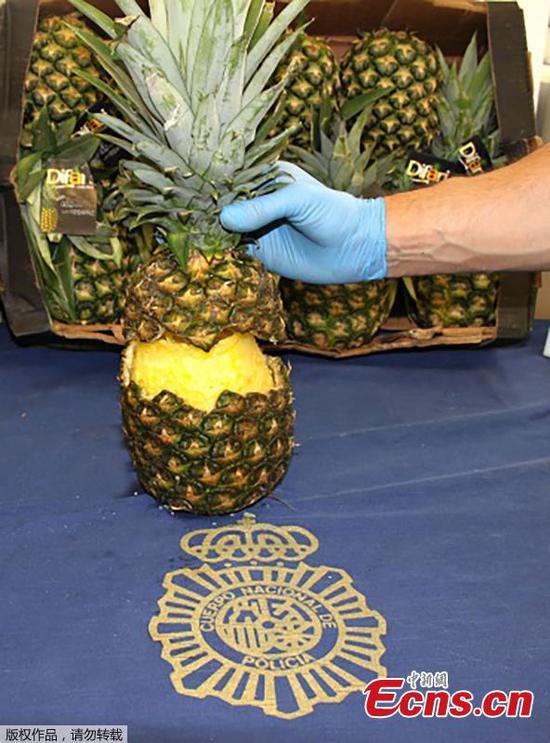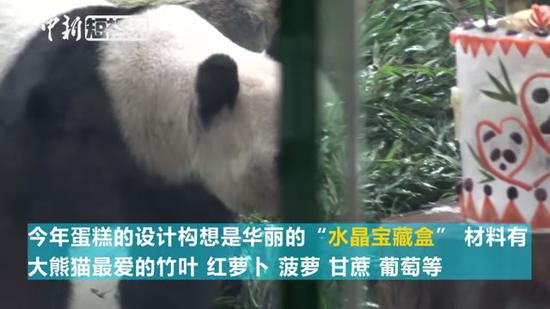Kanas, one of China's most attractive tourism destinations, will see a boom in tourism-related business, as the local government is encouraging and incubating more hotels, restaurants and shopping centers by investing nearly 4 billion yuan ($58.55 million) toward infrastructure renovation.
Measures include upgrading sewage disposal facilities and renovating over 85 percent of public restrooms. The local government also has a specialized area of 3,450 square meters local farmers and shepherds can use as retail stores for free.
Located in Altay in Northwest China's Xinjiang Uygur autonomous region, Kanas welcomed over 1.7 million tourists in 2017, up 62.8 percent year-on-year. The tourism boom has led to an average increase of 1,533 yuan in personal income for local farmers and shepherds.
"Tourism has been the driven force of our economic development. We hope to see a well-developed industrial chain, including visiting, eating, shopping and hotel services to further boost the local economy," said Dai Weiguo, deputy head publicity for Altay.
Yerkebtu, a local resident of Tuva ethnicity who used to graze cattle and horses, started his homestay businesses with nine other families since 2015.
"We make and sell yogurt, milk wine, snowboards, all of which contain rich Tuva flavor and elements," Yerkebtu said.
"Tourists like products that have Tuva elements, as they cannot find those anywhere else," Yerkebtu added. According to Yerkebtu, China now has about 2,000 Tuva people —most of whom live in Kanas.
Starting this year, Yerkebtu introduced Tuva dining services and music performances at extra charge. "Those services are welcomed by tourists, as they represent a unique lifestyle of local people," Yerkebtu said.
"Our business earned revenue of one million yuan last year. In 2016 it was 300,000 yuan. We are confident the number will continue to grow," Yerkebtu said with a laugh.









